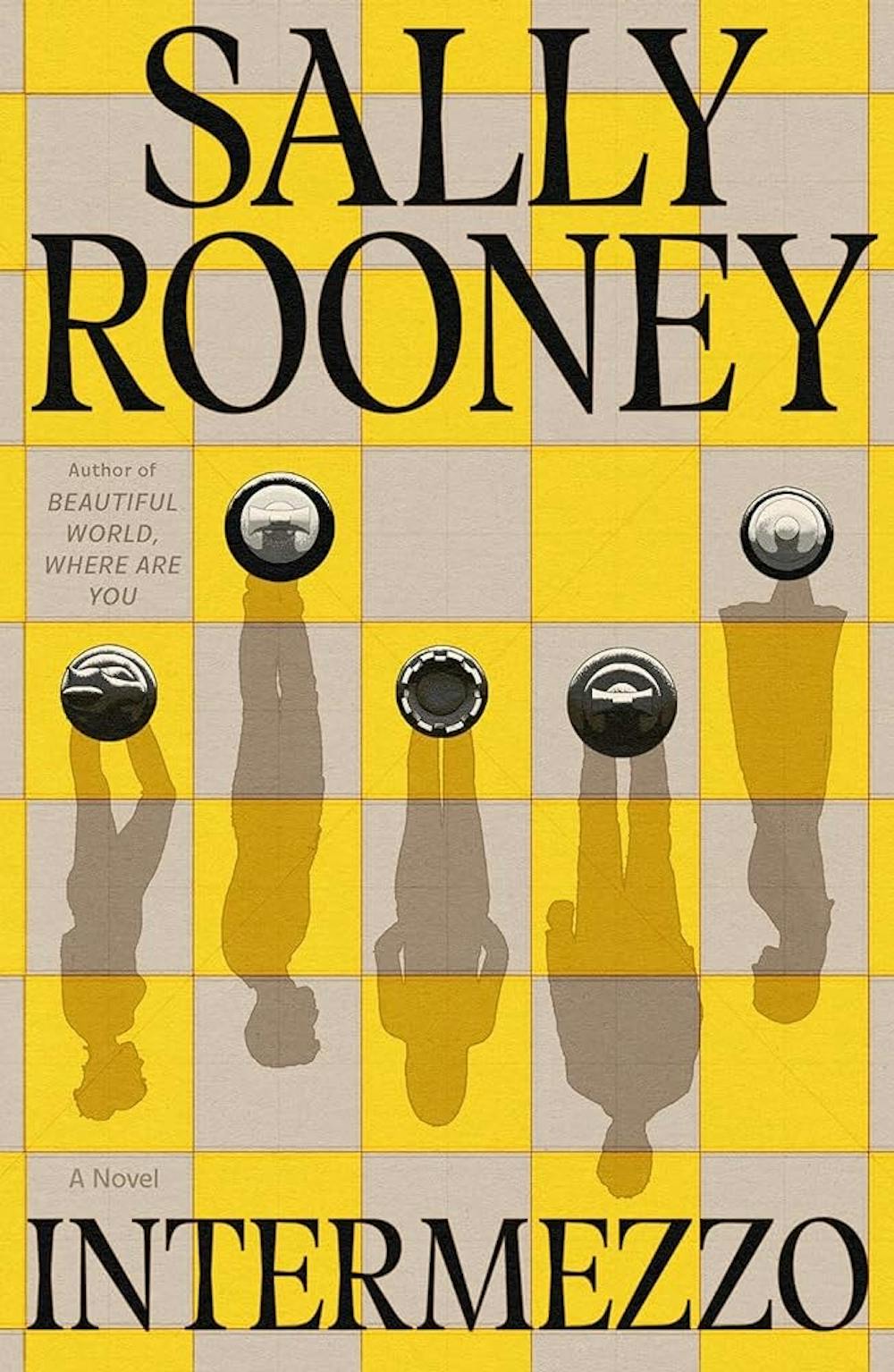Review: ‘Intermezzo’ is like a toxic relationship

Score: ★★★★
There is something degrading about reading “Intermezzo.” You’ll find it unpleasant, and Sally Rooney tries her best to make it unenjoyable, yet you won’t put it down. Notably, the author writes about someone else for a change (avoiding the long-held autobiographical accusations) while maintaining her distinctive narrative voice, and an uncanny ability to capture how, and why, we hurt the people we are supposed to love.
“Intermezzo,” released Sept. 24, is Rooney’s third book and features refreshingly different characters. The book centers on two feuding brothers, 12 years apart in age and even further apart in temperament. Ivan, the younger of the two, is 22 years old, newly graduated and meandering through life as he struggles to find his form again as a semi-professional chess player. Peter, on the other hand, is a high-strung and self-righteous human rights lawyer whose interactions with his brother are defined by his condescending and unempathetic attitude.
The novel begins with the death of their father and follows the brothers in the months after. I appreciated Sally Rooney’s realistic presentation of grief — it lingers in the lives of the protagonists. Sometimes it’s at the forefront of the novel, but often it slips to the background, although its residue remains.
The brothers’ grief defines their romantic relationships. Ivan falls for an older woman, Margaret; he experiences a love he’s never felt but longed for painfully, especially in the aftermath of his dad’s funeral. Peter is torn between two women — his ex-girlfriend Margarete (whom he clearly still loves, but can’t be intimate with due to her chronic health conditions), and Naomi, a much younger woman.
Our perception of Peter is clouded further because of Naomi’s sex work. Rooney invites the reader to judge Peter and the ethical ambiguities that define his relationship with Naomi. He regularly sends her money, but the relationship is presented from Peter’s perspective as more than just transactional.
One’s discomfort with Peter’s relationship is heightened even more because of the graphic sex scenes in the book. When Ivan and Margaret have sex, it’s presented as an organic — and awkward — expression of love. This is not the case however, when Peter and Naomi have sex. Instead, Peter presents an objectified and sexualized Naomi, who has nothing of value, in his view, except her body: Peter says that she is the “owner of nothing in the world but her own perfect body,” Rooney writes.
Moreover, we are constantly reminded that Naomi engages in sex work while attending college — Peter frequently wonders about the other men in her life, and it’s hard to shake the feeling that Peter is taking advantage of a much, much younger girl who is financially dependent on him.
This is not a reason not to drop this book, however. One of Rooney’s talents is her writing’s ability to spark uncomfortable conversations with its unsuspecting readers, who may be under the impression that they are just going to be enjoying a simple romance novel.
This skill is also demonstrated in the poignant quasi-Marxist critiques of the alienation of labor that are littered throughout “Intermezzo,” and characters frequently muse on the way that our capitalist systems have left them feeling unfulfilled and lost. Impressively, these moments don’t feel cliche or unnatural — instead they round off her characters, and help us as readers better understand their anxieties.
My only qualms about the book lie at the sentence level. Quotation marks are, in true Sally Rooney style, missing in the novel. More unusual was the plethora of sentences lacking articles, subjects, objects or verbs. I suspect that Rooney was trying to better translate her character’s internal monologues and capture the disjointed nature of their thoughts. Unfortunately, however, this came at the expense of the reading experience. It was jarring being forced to stop and reread a sentence to make out what was being written.
In “Intermezzo,” Sally Rooney reminds us that there is love in even the messiest and imperfect of relationships. Besides the — at times — questionable prose style, the novel is a delight to read. Rooney’s characters may be unlikeable, but I found myself unable to give up on them.
More from The Rice Thresher

Andrew Thomas Huang puts visuals and identity to song
Houston is welcoming the Grammy-nominated figure behind the music videos of Björk and FKA twigs on June 27.

Live it up this summer with these Houston shows
Staying in Houston this summer and wondering how to make the most of your time? Fortunately, you're in luck, there's no shortage of amazing shows and performances happening around the city. From live music to ballet and everything in between, here are some events coming up this month and next!

Review: 'Adults' couldn’t have matured better
Sitcoms are back, and they’re actually funny. FX’s “Adults” is an original comedy following a friend group navigating New York and what it means to be an “actual adult.” From ever-mounting medical bills to chaotic dinner parties, the group attempts to tackle this new stage of life together, only to be met with varying levels of success.

Please note All comments are eligible for publication by The Rice Thresher.